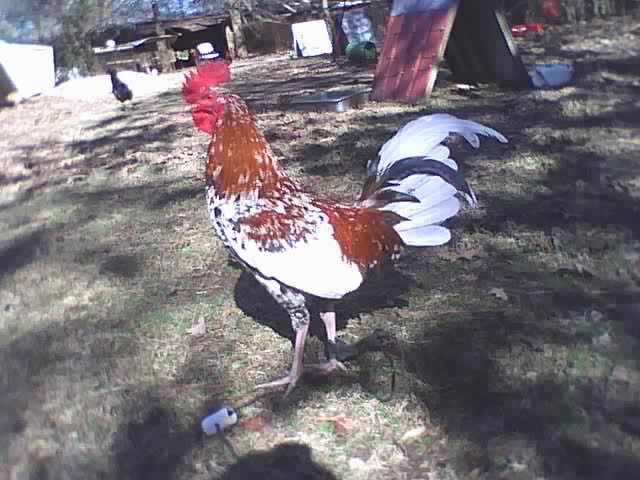Hey found this in the Oklahoma Craig's list, there is a phone number if interested! Lynn
transaction protection/certification/guarantee. More info
** White Asil Hens** - $15 (South of Tahlequah)
--------------------------------------------------------------------------------
Date: 2011-01-21, 5:14PM CST
Reply to:
[email protected] [Errors when replying to ads?]
--------------------------------------------------------------------------------
Pure white Asil female chickens for sale. 1 hen, 3 mature pullets, $15 each. 2 pullets that are 4 months old, $10 each.
One baby rooster, 4 months old, $20.
Asil hens are excellent mothers and setters. I have used them to hatch everything from bobwhite quail to full-sized goose eggs. They are very dedicated sitters, and the hens are gentle with the babies, with people, and each other. All are pure white, and are on the small side. They weigh around 3 1/2 pounds, which is bigger than a banty hen, but not as big as a Rhode Island type hen.
The males MUST be housed in separate pens from other roosters. They will not tolerate the company of any other males, but are very sweet to their hens and are not mean to people. Picture is the daddy of the baby rooster and all of the pullets.
Call 918-316-2939, leave voice mail if no answer. Only calls and voice-mails will be answered, NO EMAIL, NO TEXT.






